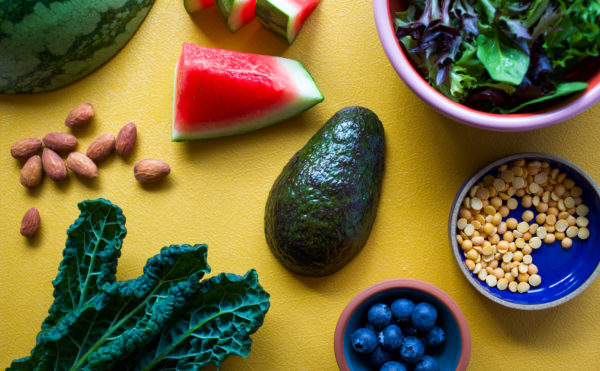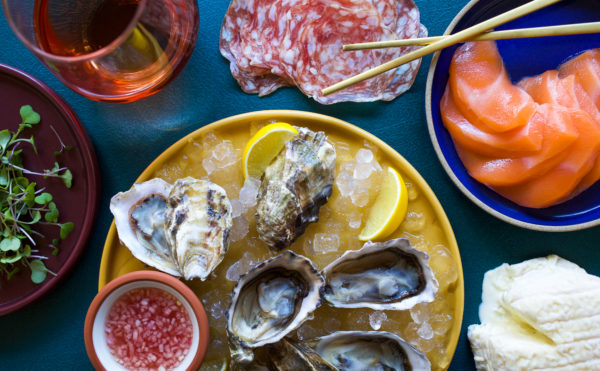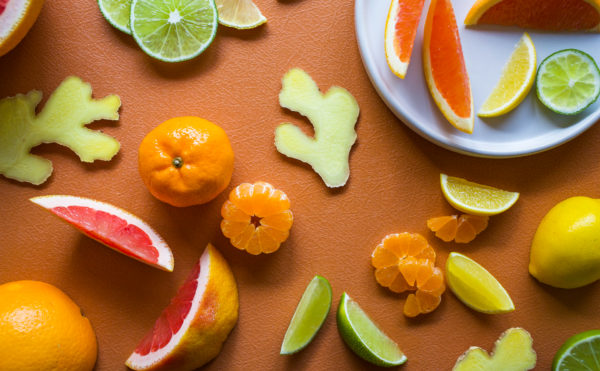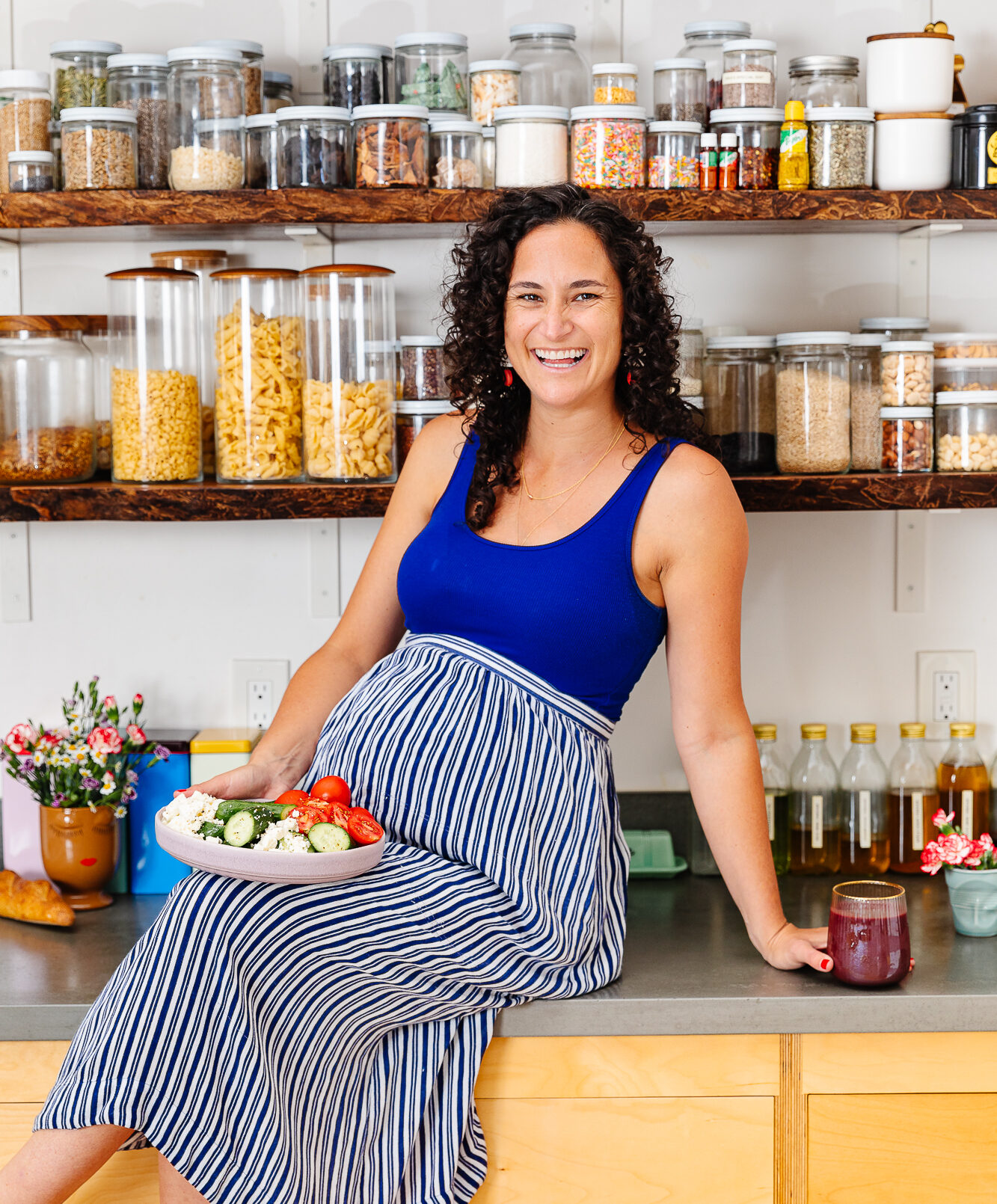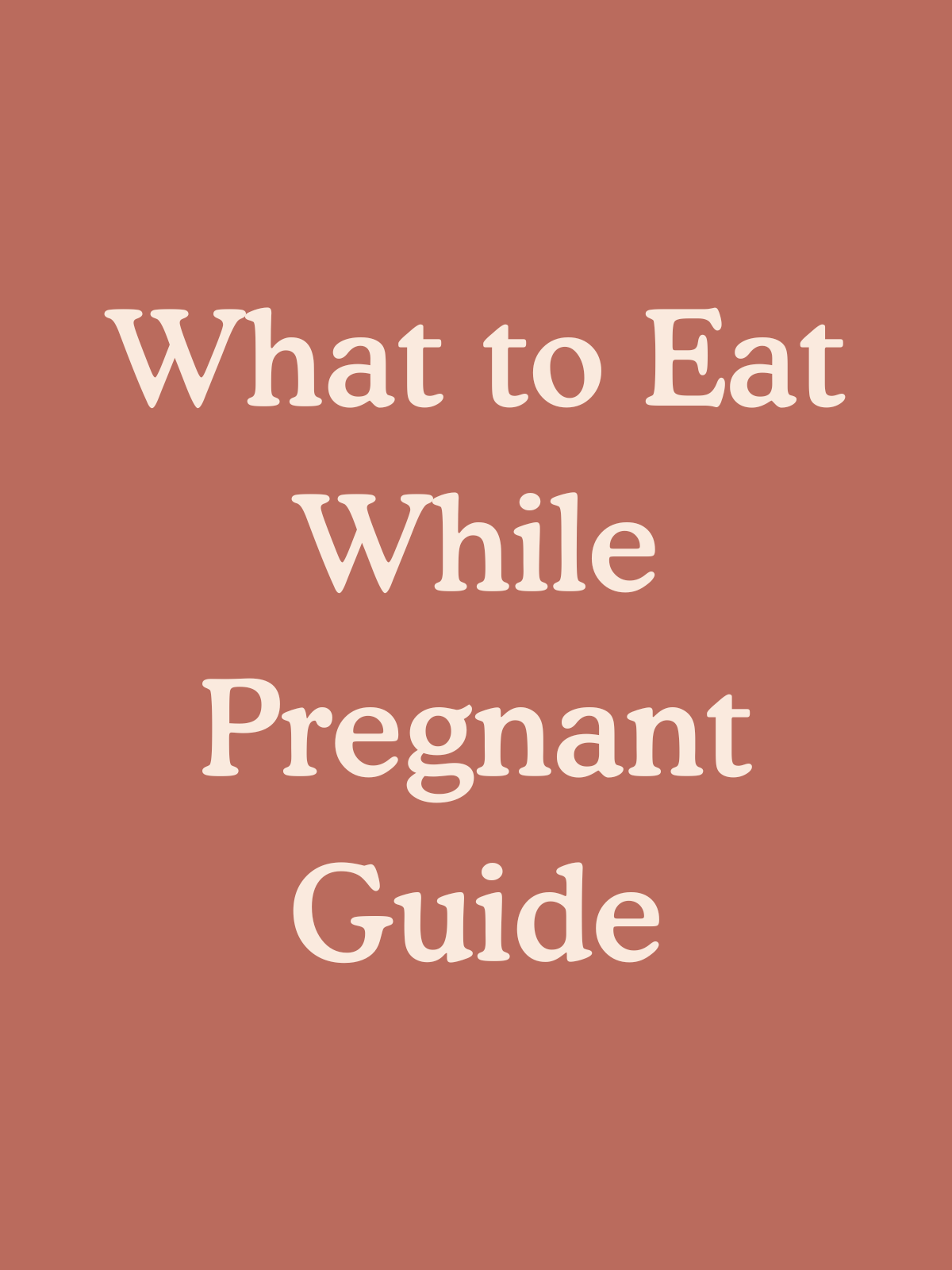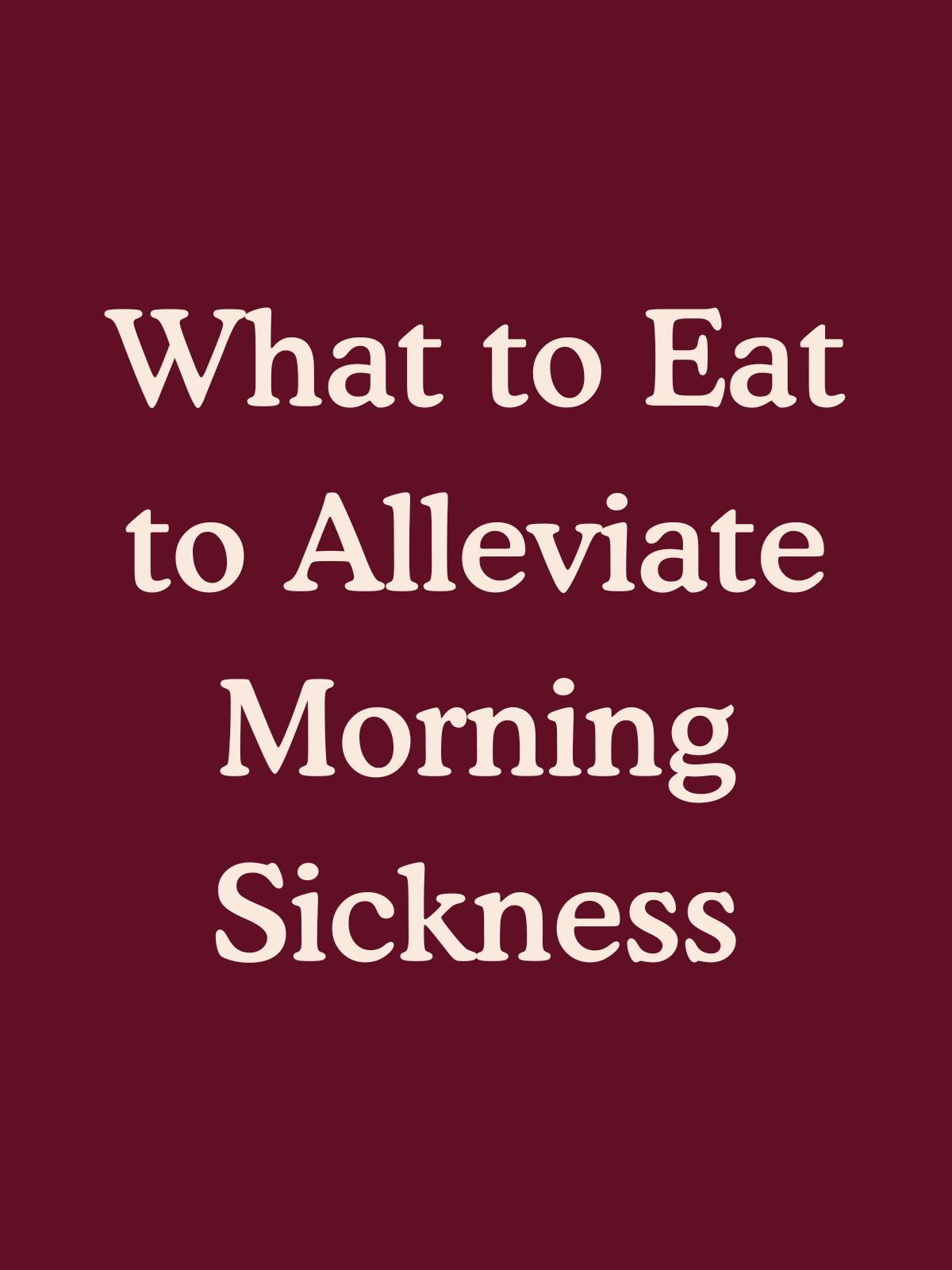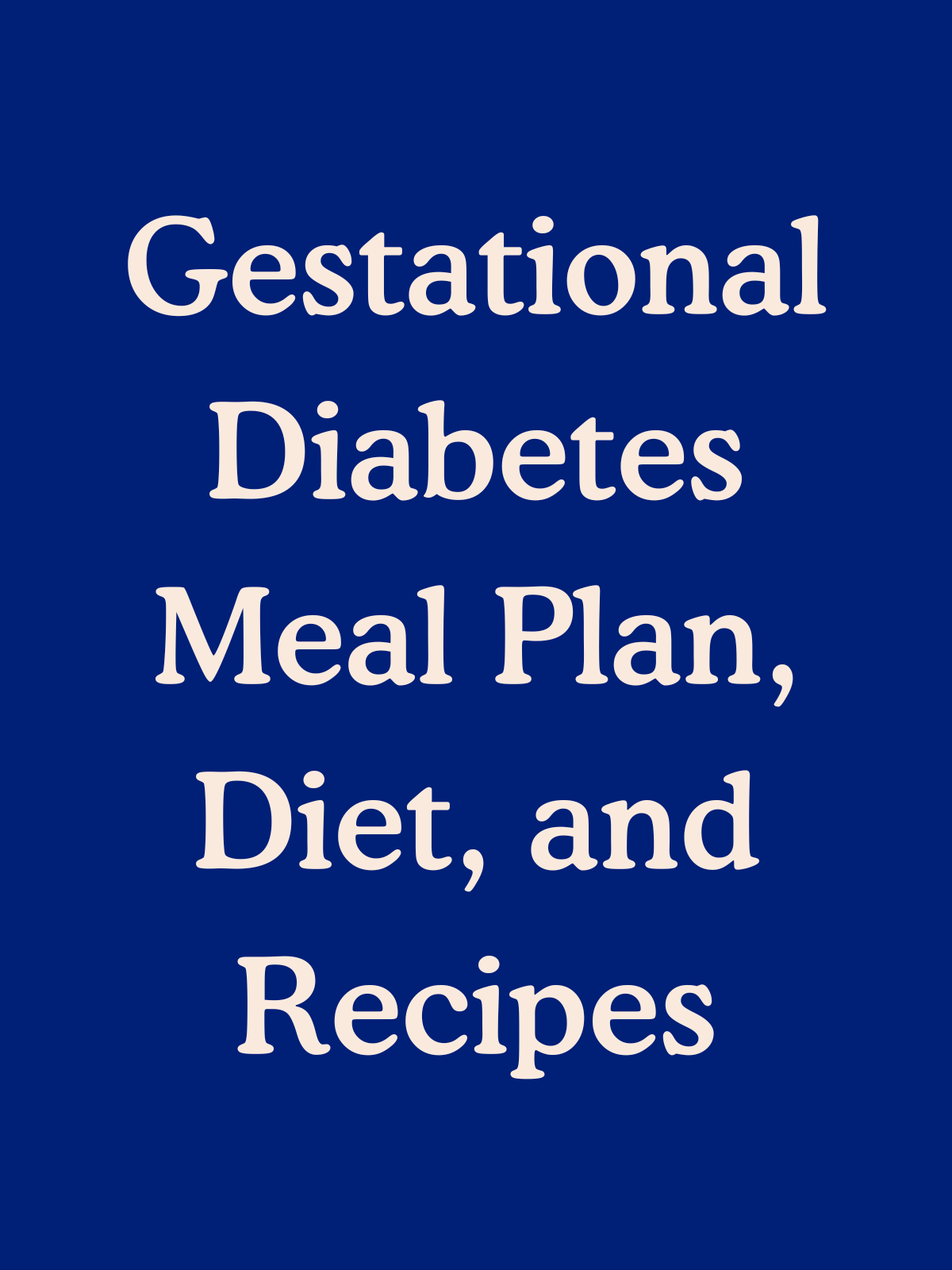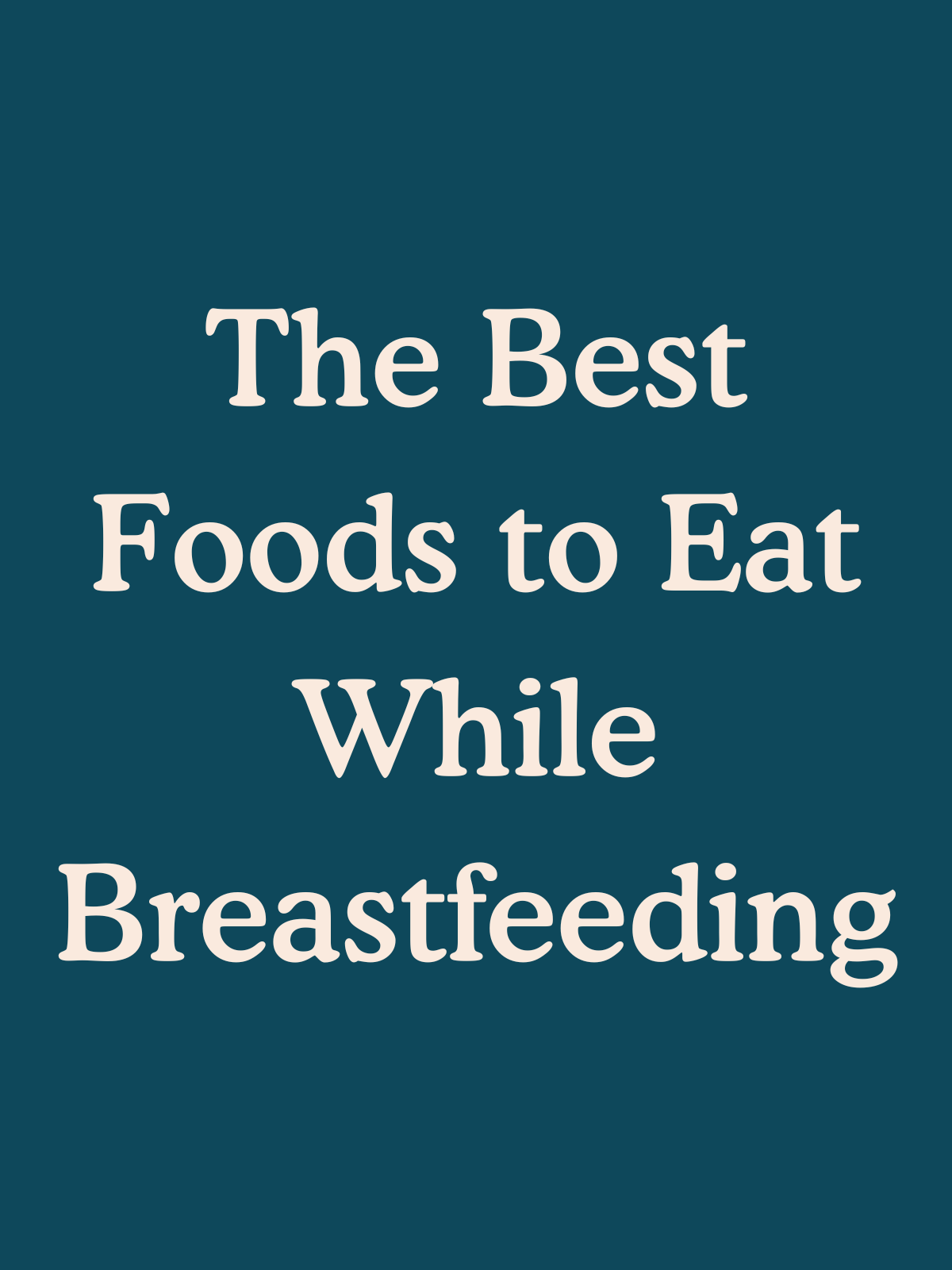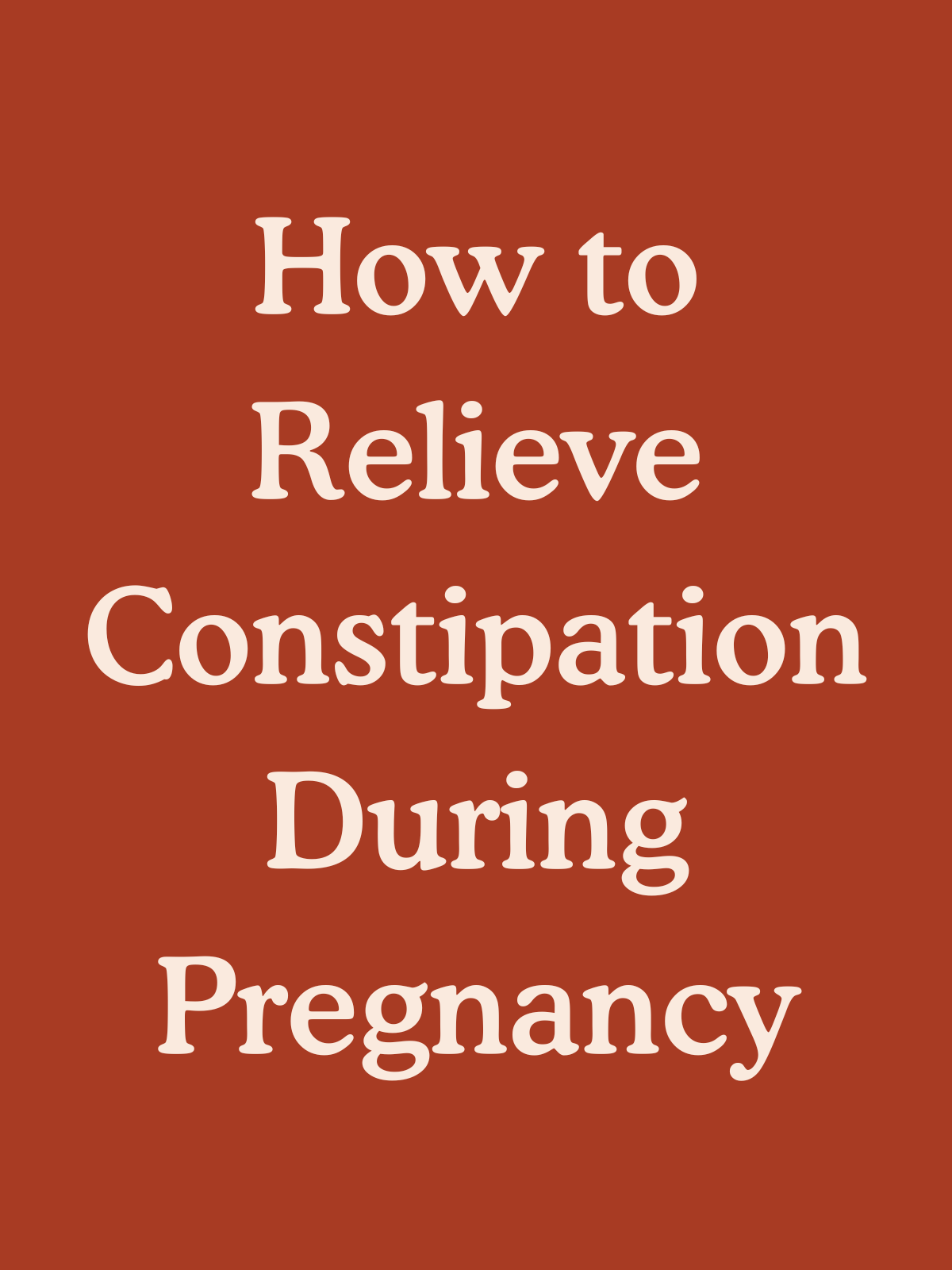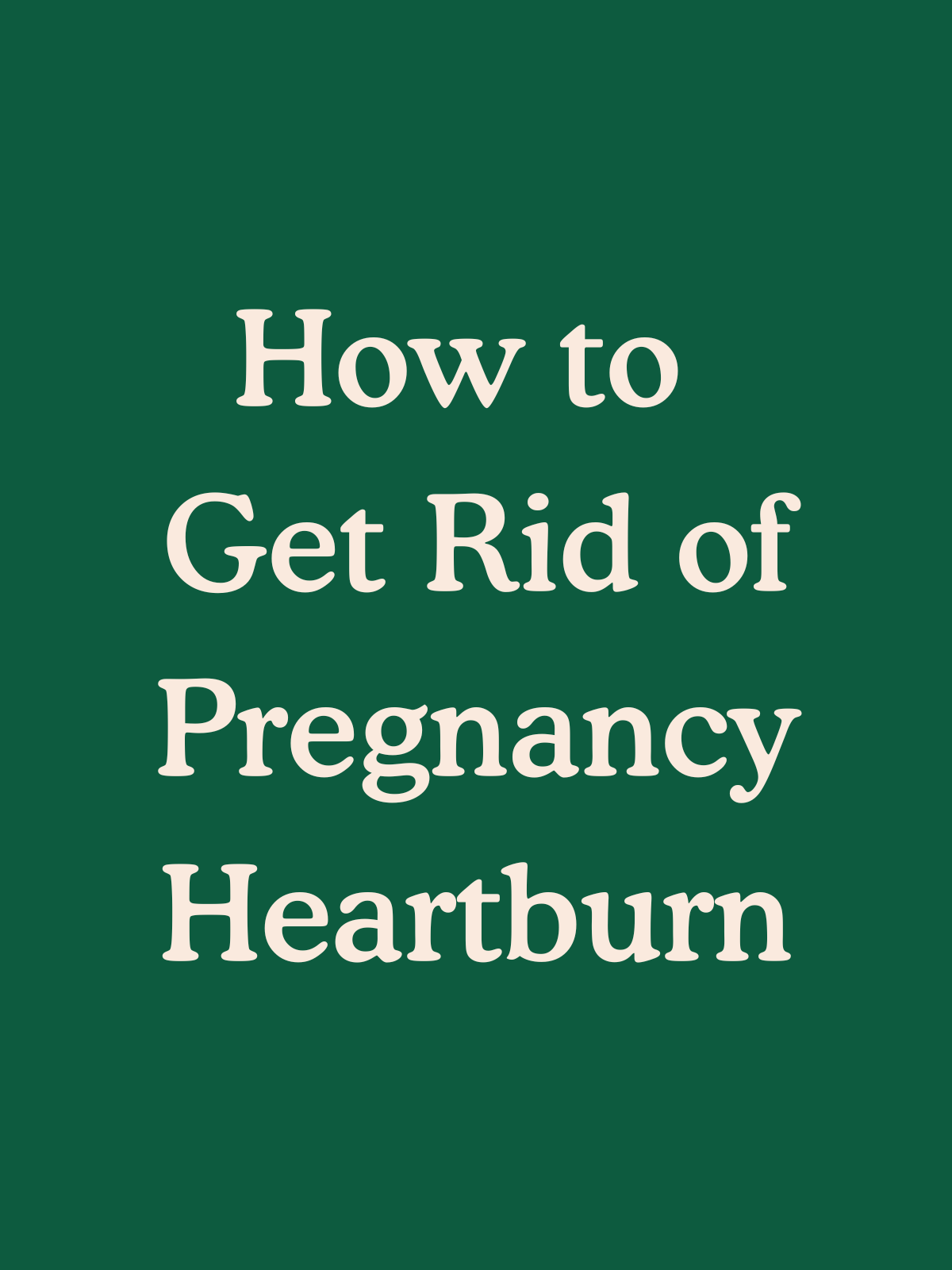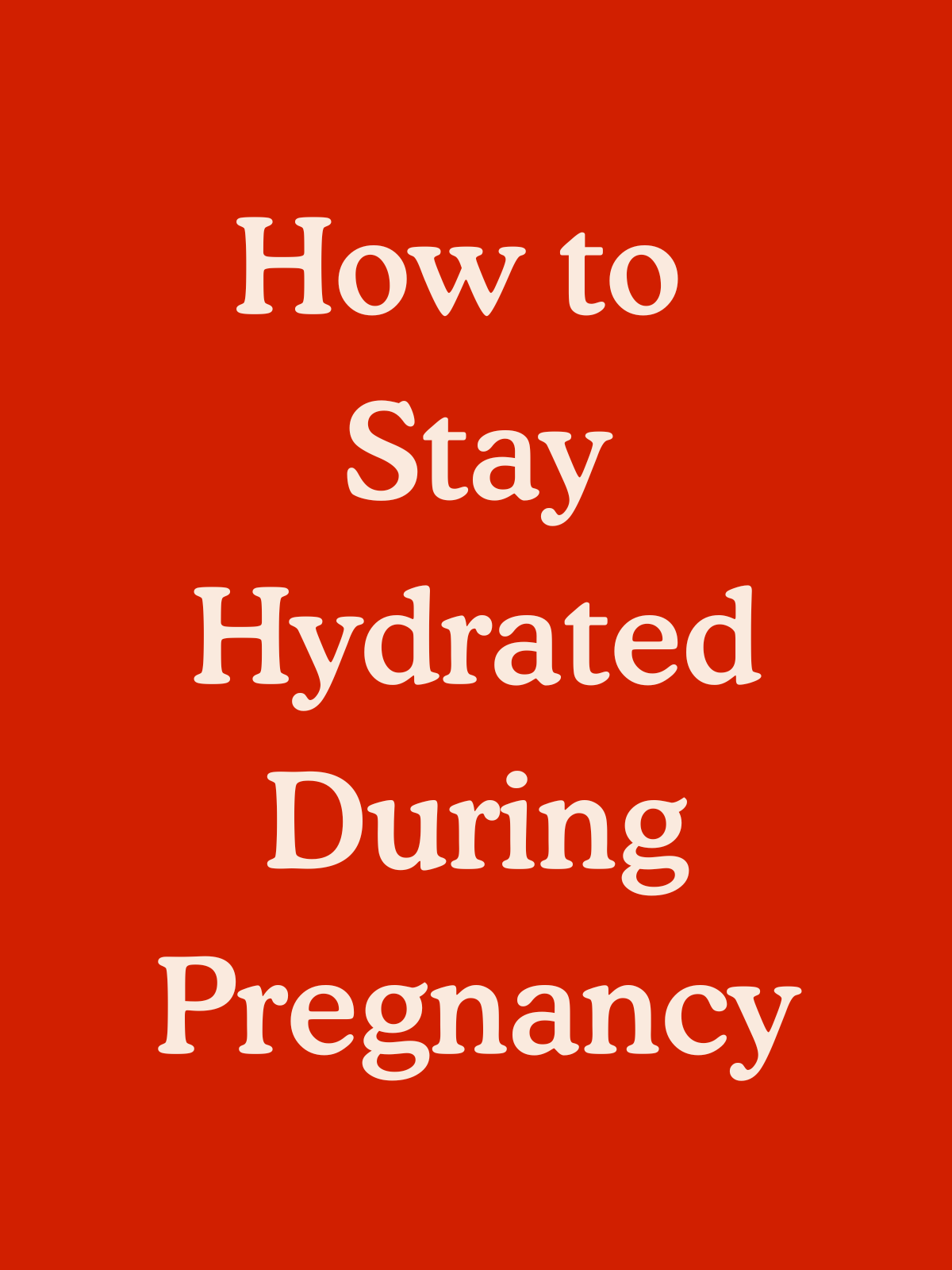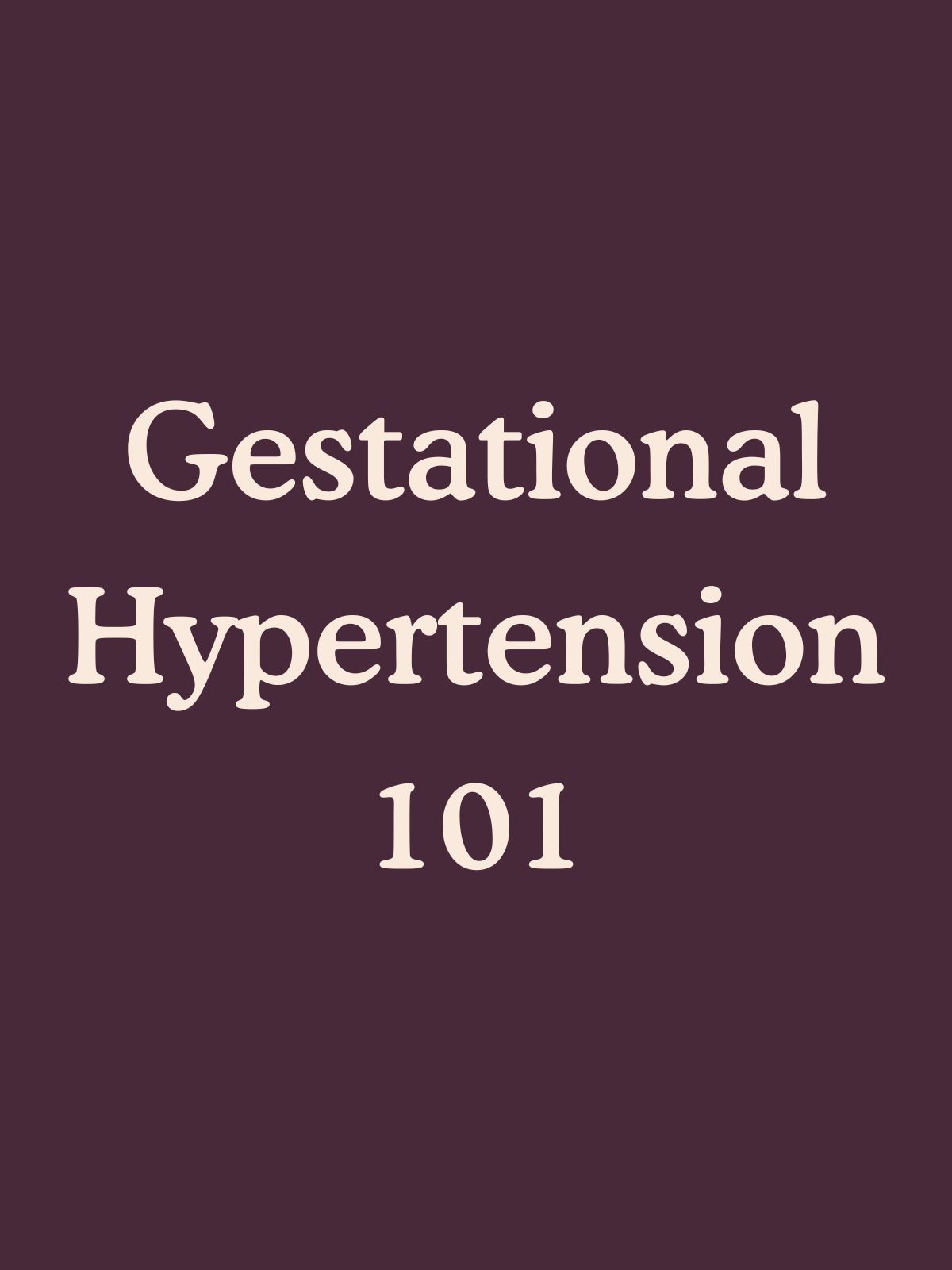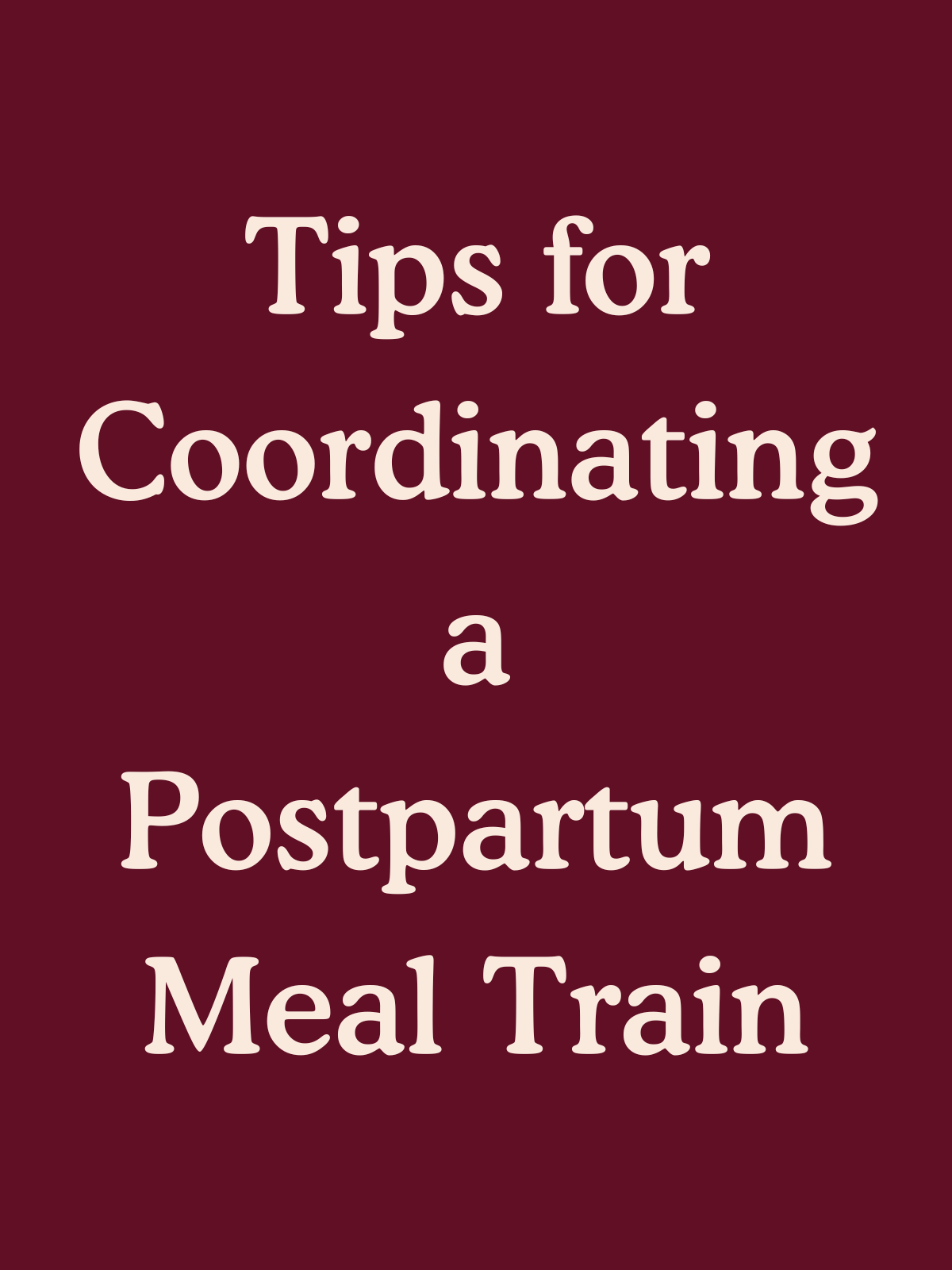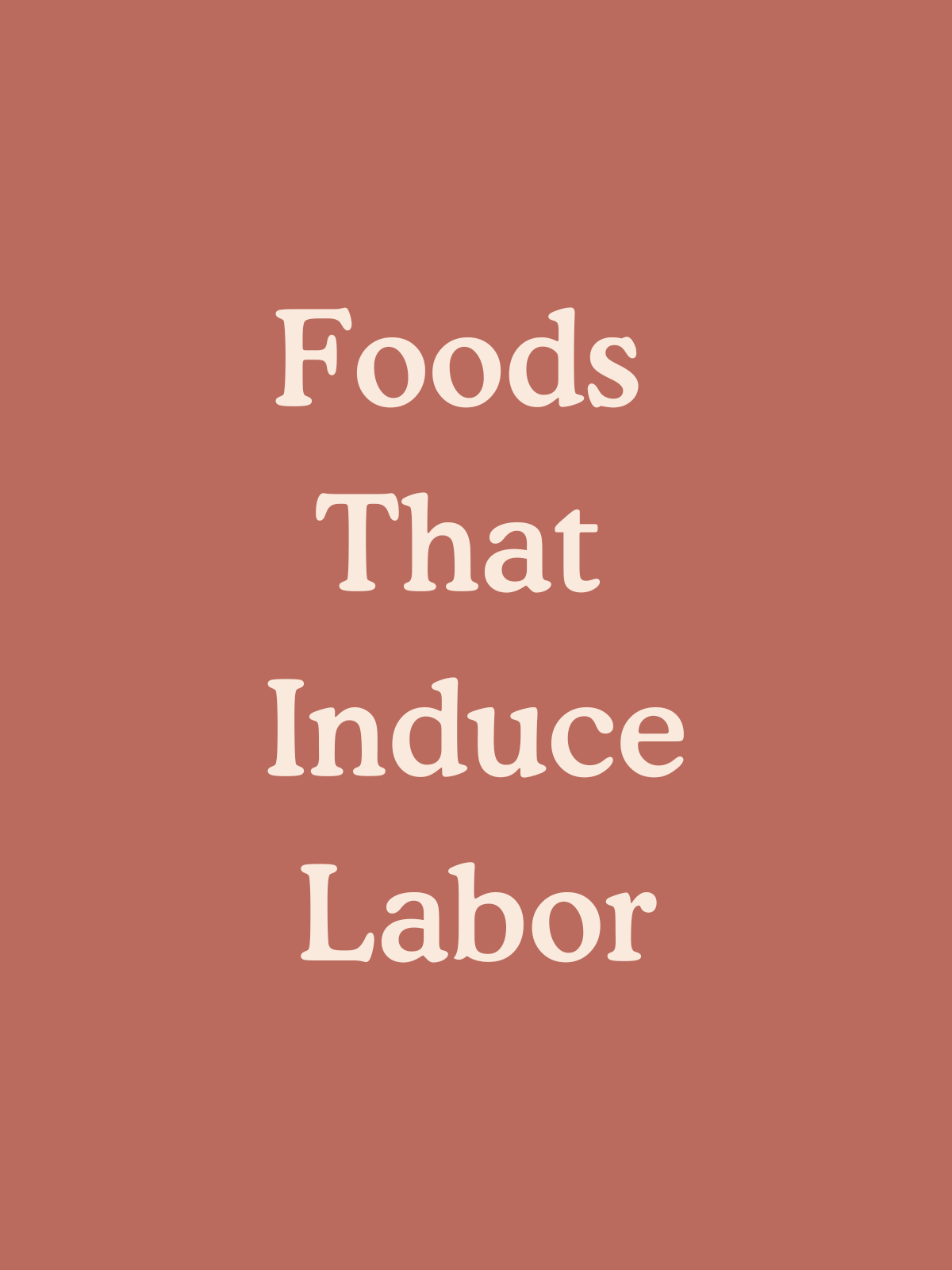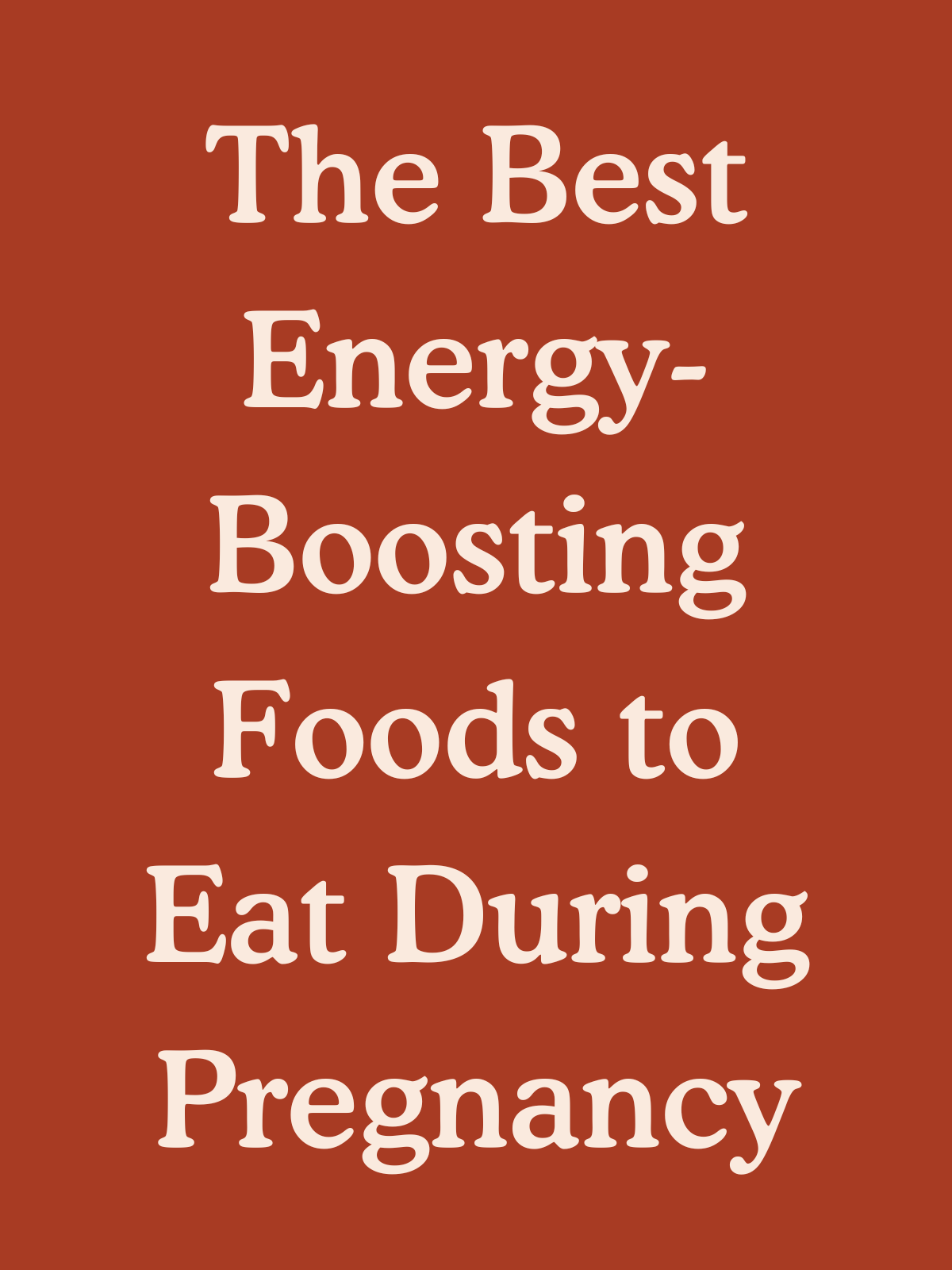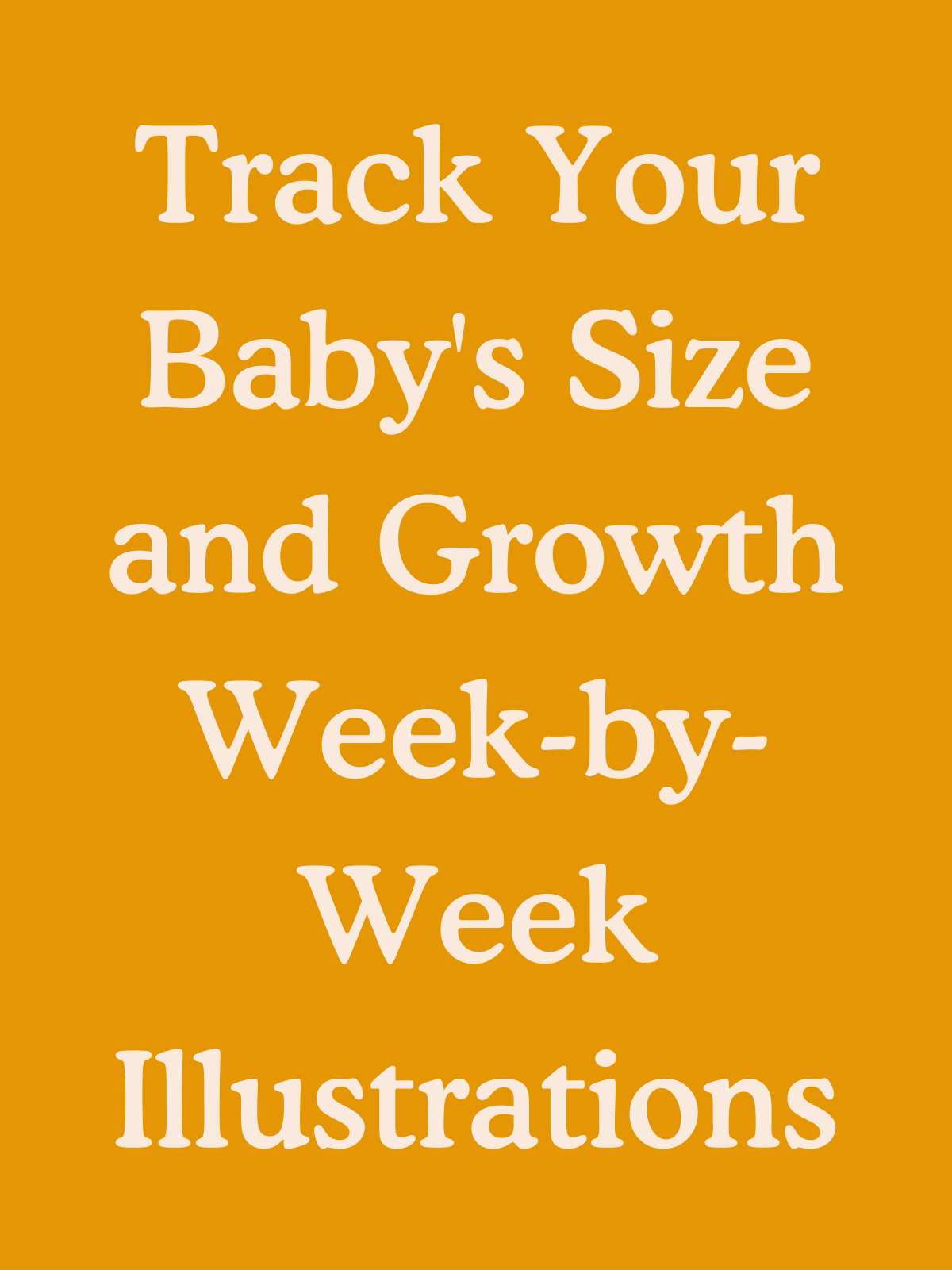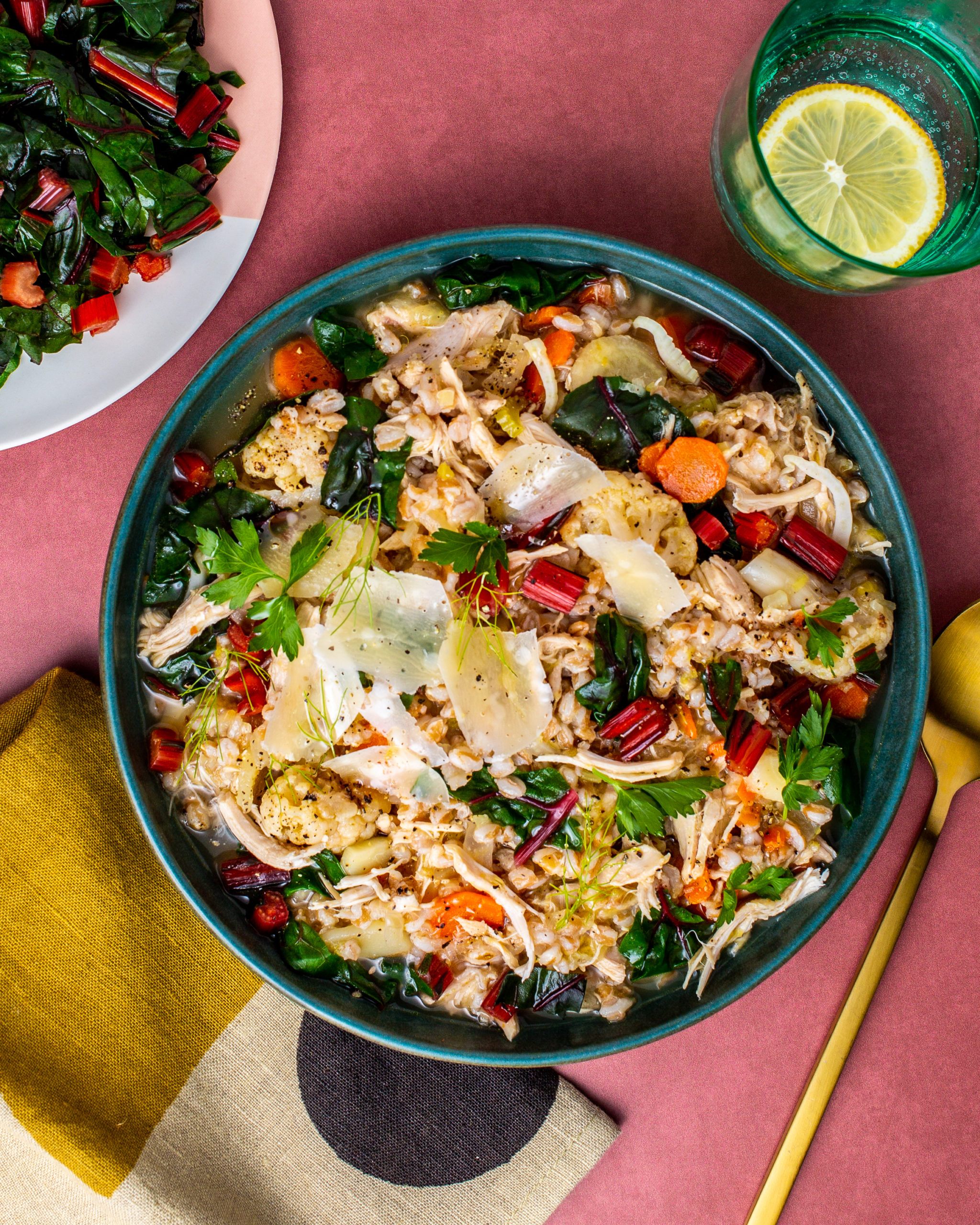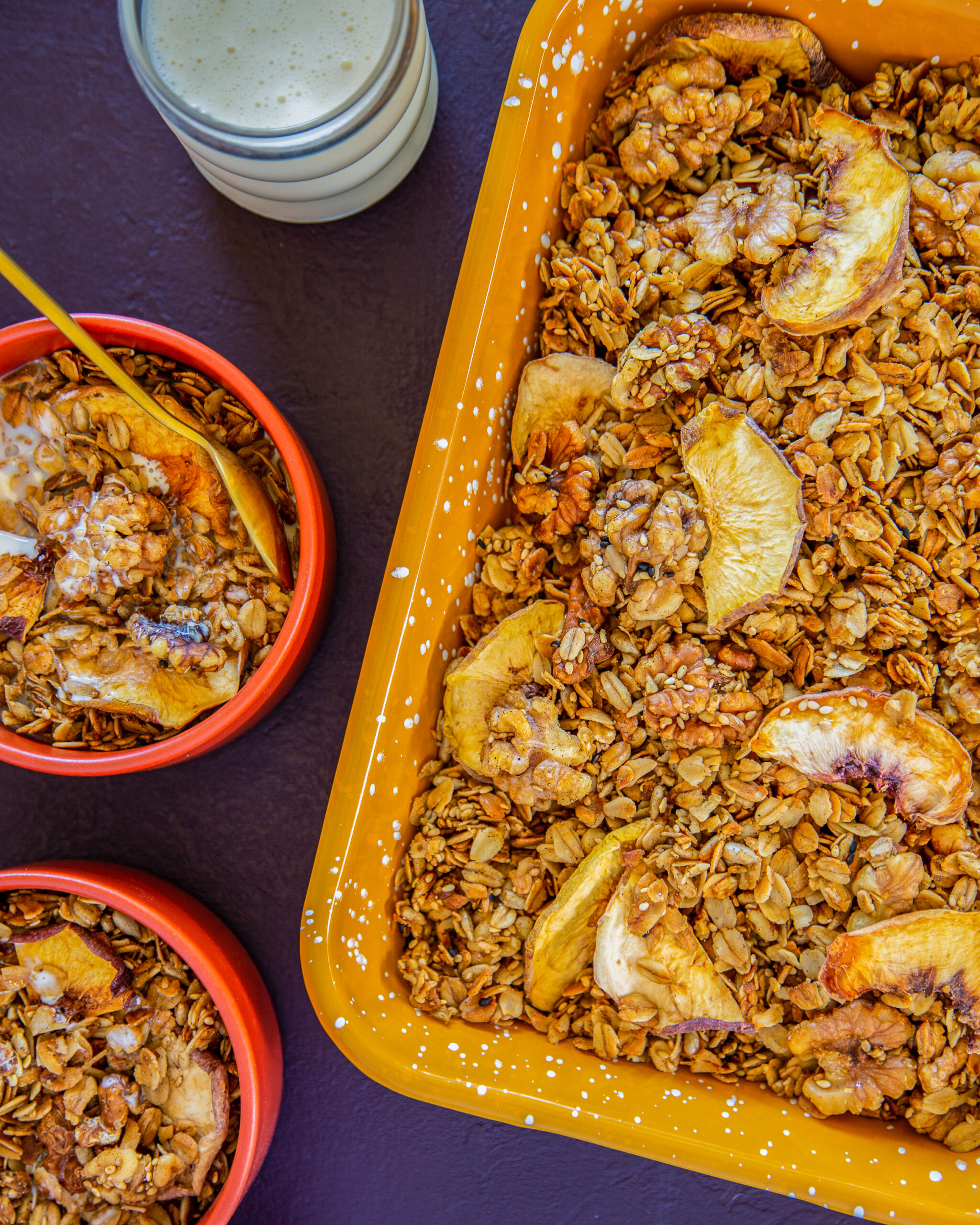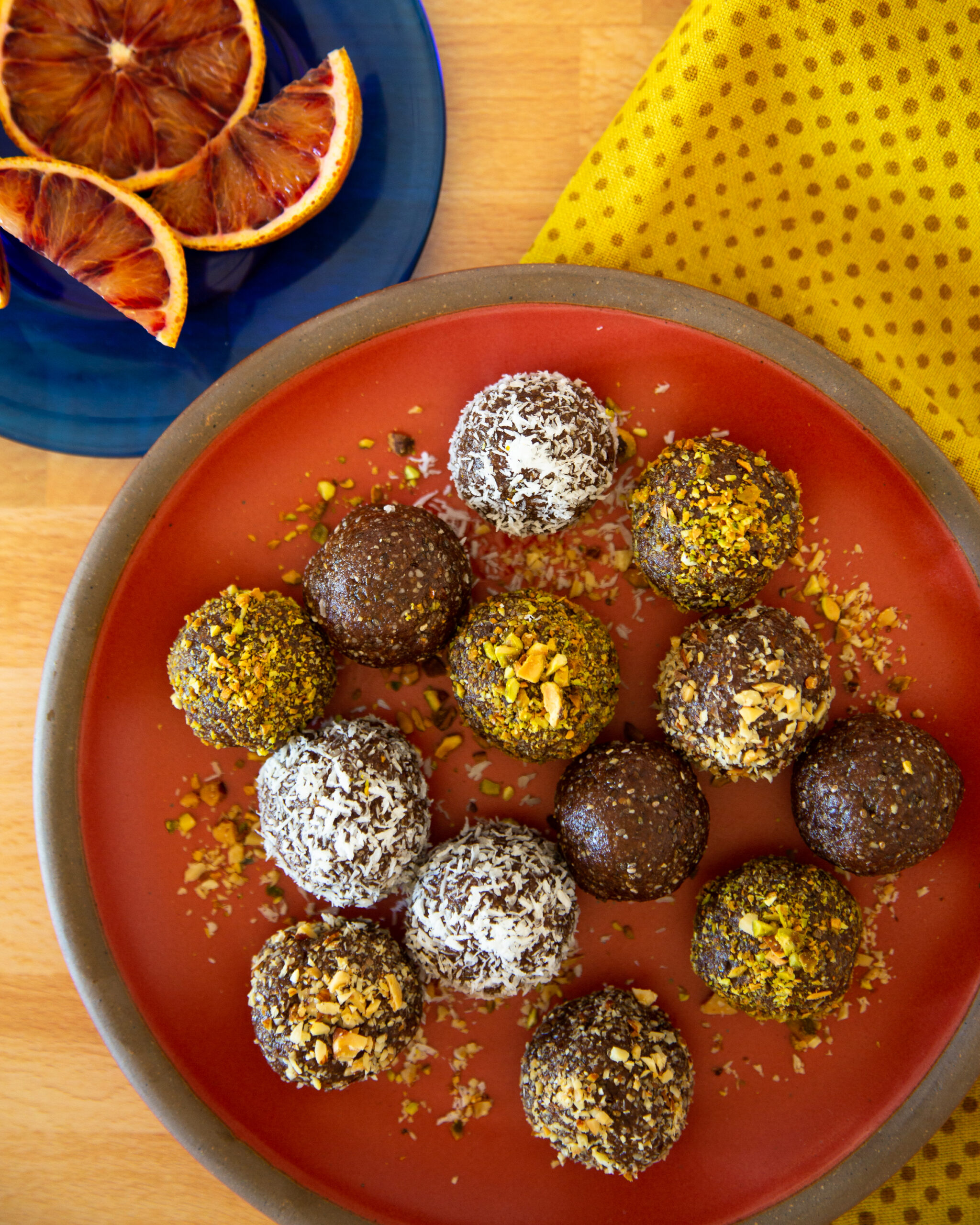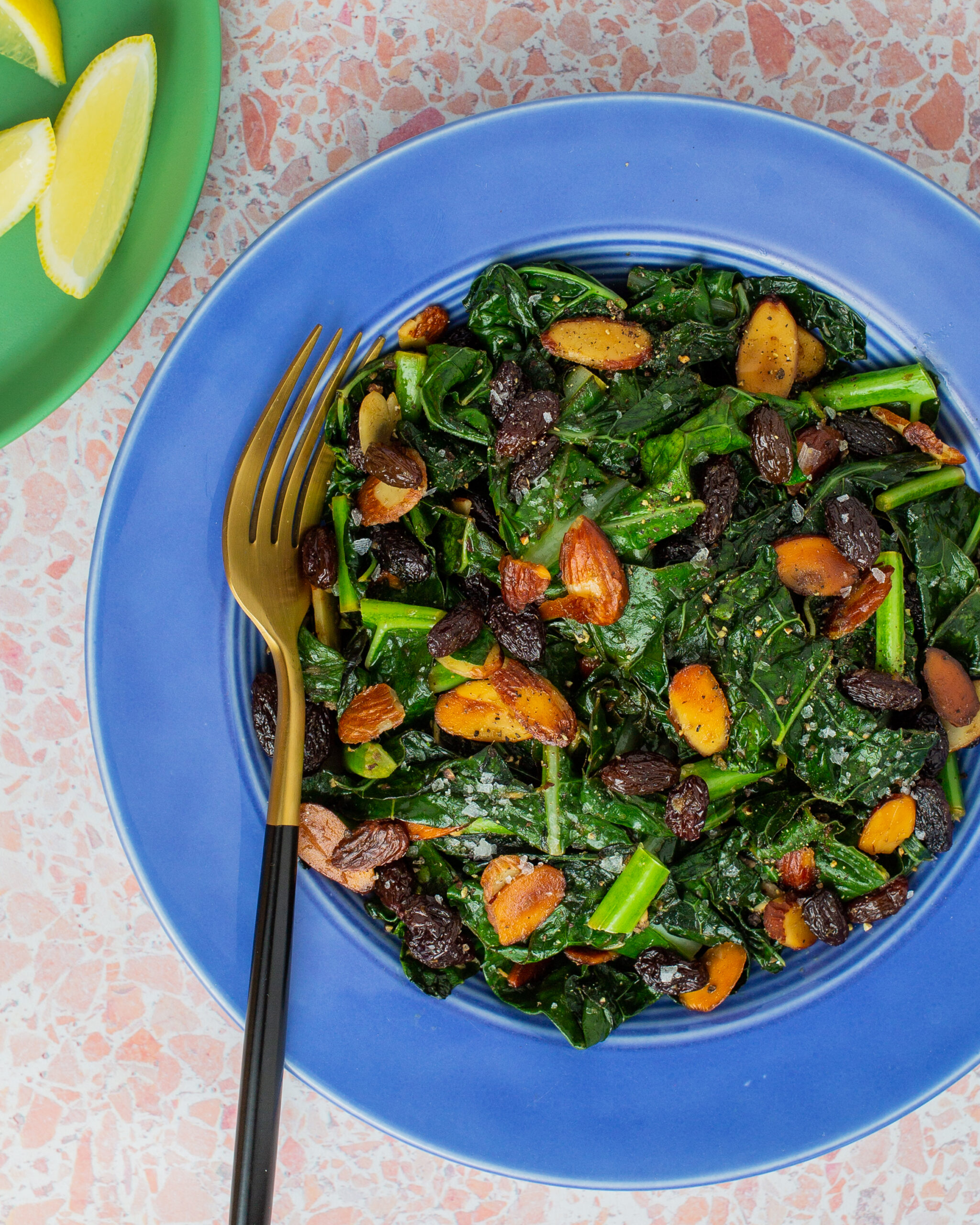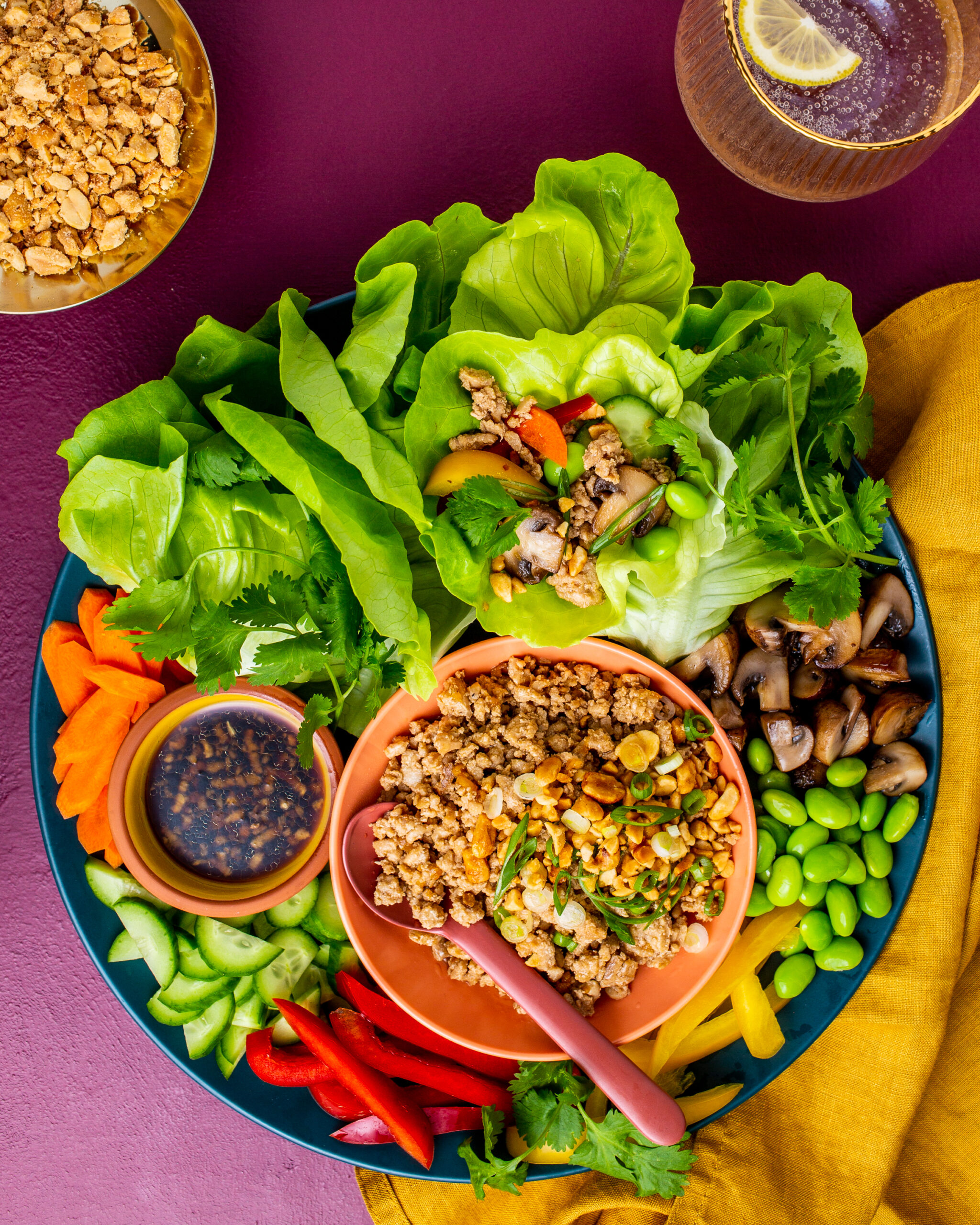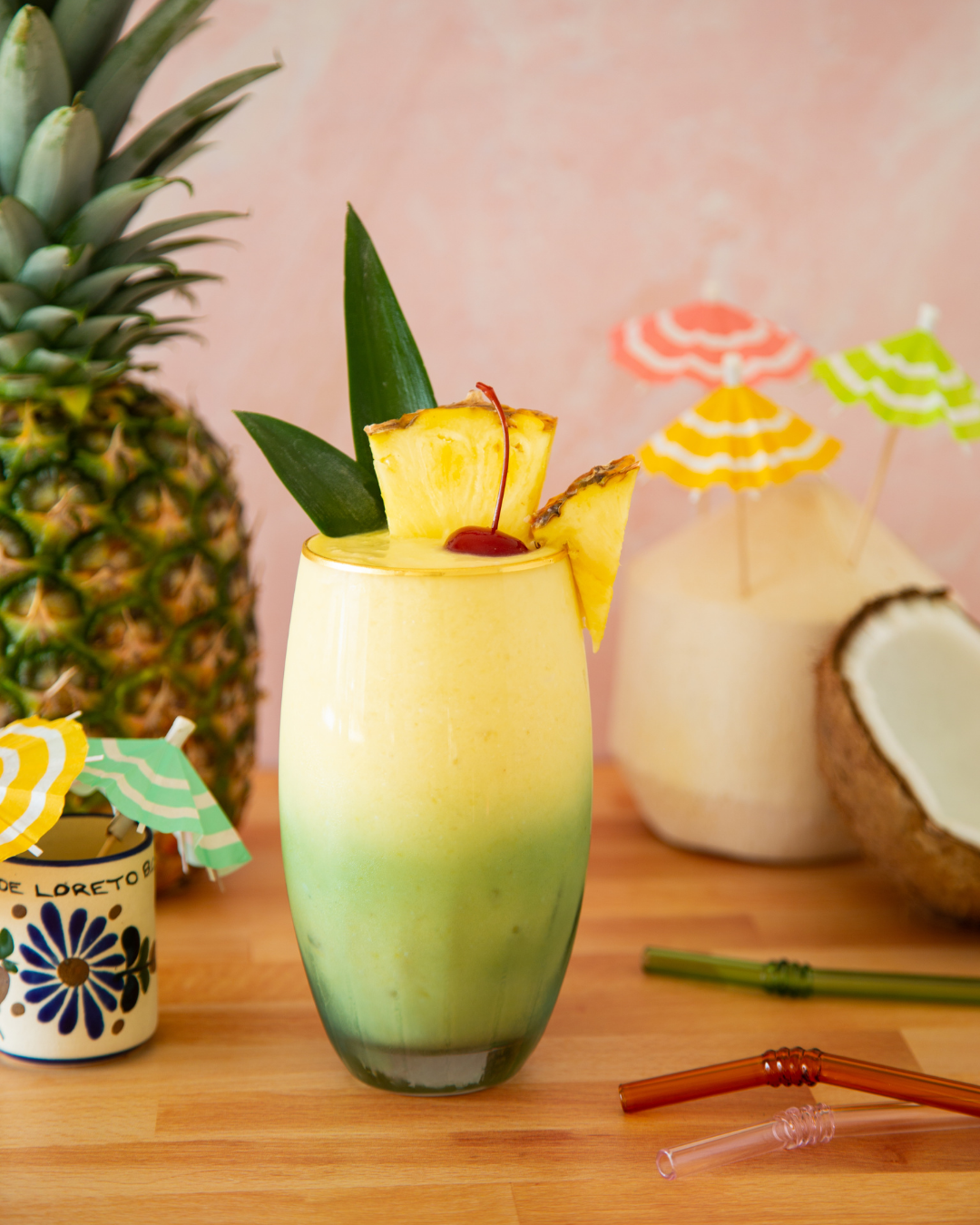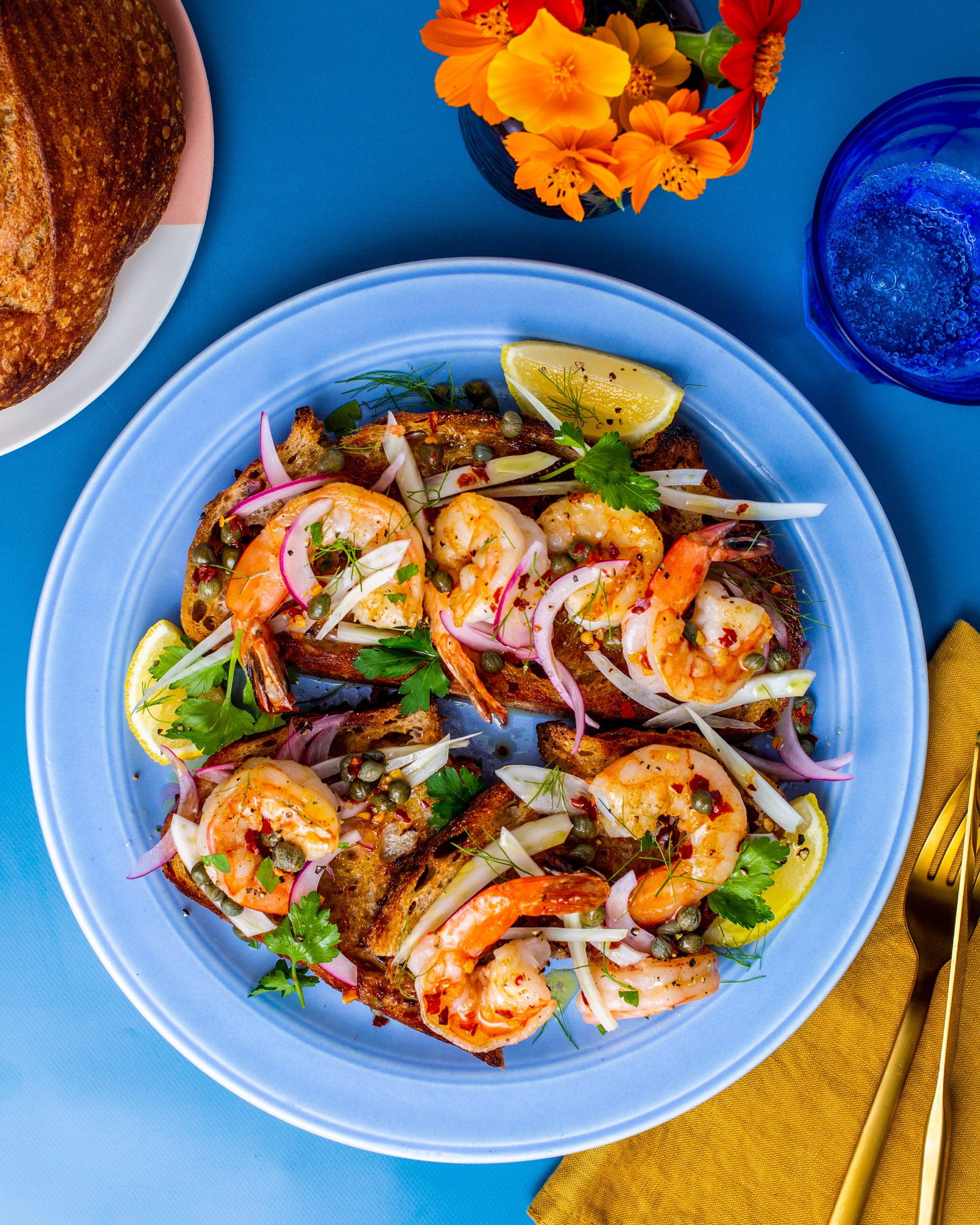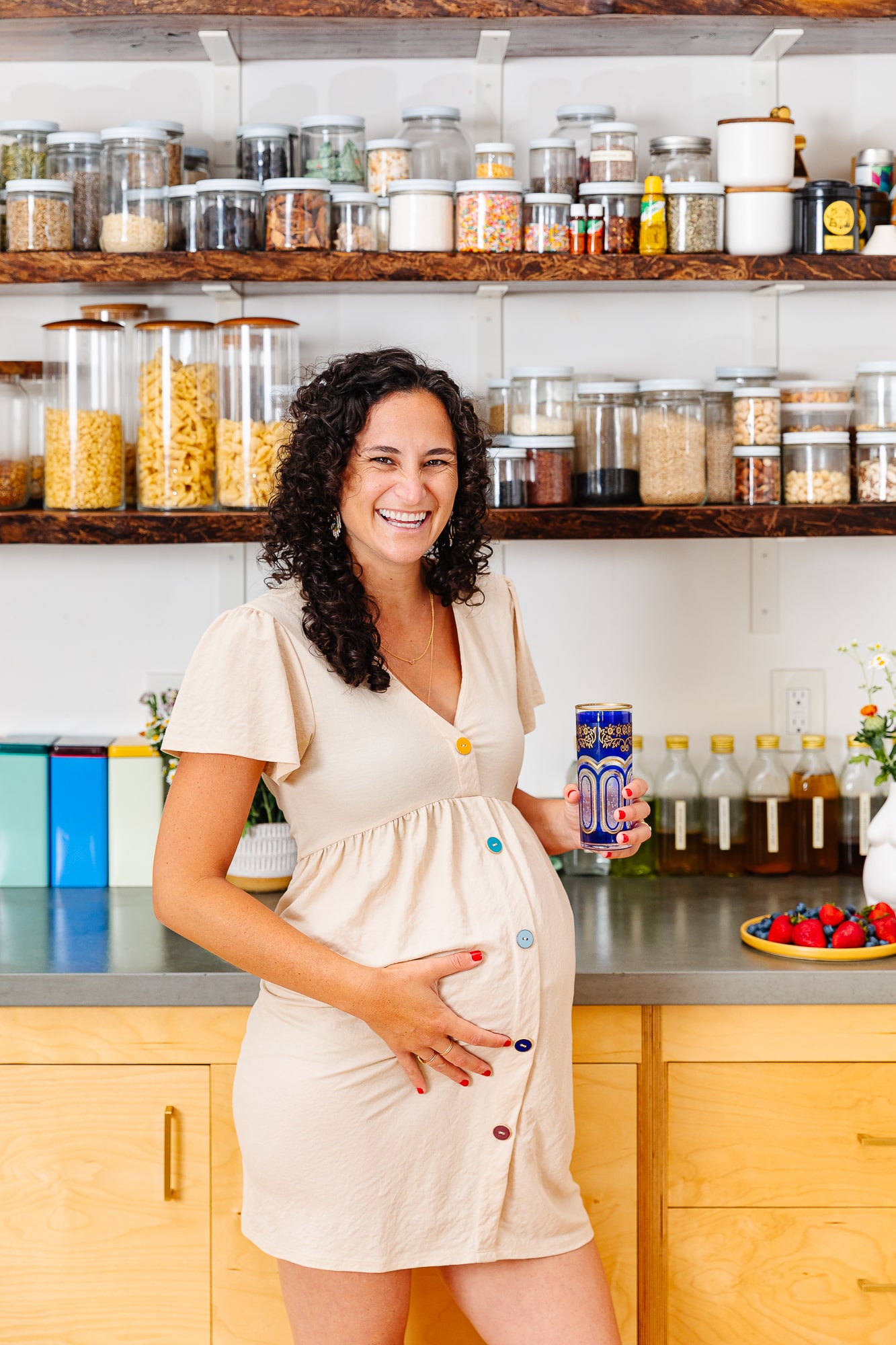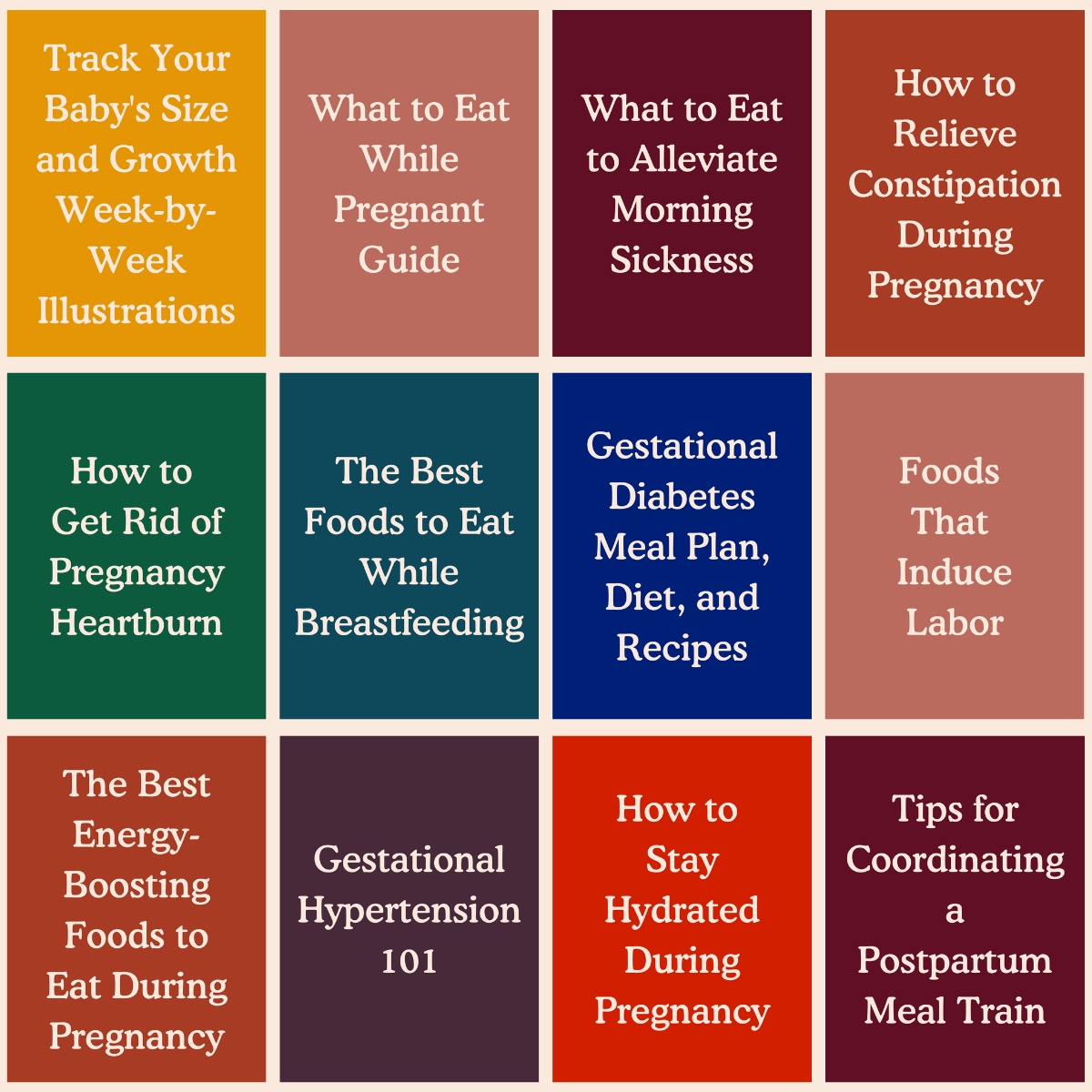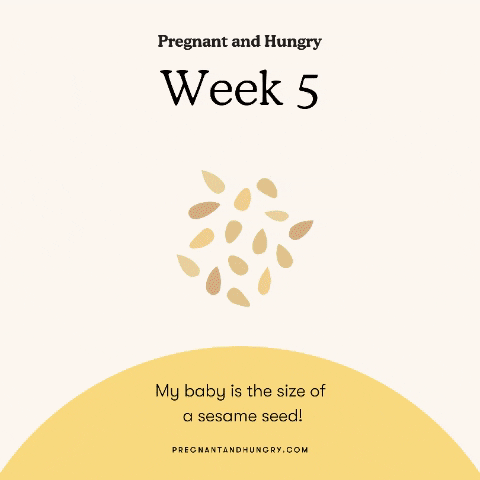5 Vegetarian Dinners For A Healthy Pregnancy
August 28, 2023
Do you want to follow a plant-based diet but have no idea what to eat during a vegetarian pregnancy? To mitigate any vegetarian pregnancy risks, it’s essential to make sure that the meals you’re eating have the nutrients you need. From protein to omega-3, let’s dive into plant sources of important prenatal vitamins and minerals to include in your vegetarian pregnancy meal plan.
Is It Safe To Be A Vegetarian While Pregnant?
Yes! It’s safe to follow a plant-based diet while pregnant with limited animal products, as long as your meals have the nutrients you need to support you and your baby during this period.
There is a bit more planning involved when you have a vegetarian pregnancy, as you’ve got to incorporate a variety of vegetables to ensure you’re getting the vitamins that are more commonly found in meat and fish.
Zinc, vitamin D, folate, iron, vitamin B12, omega-3s, protein, and calcium are all essential nutrients (that vegetarian people are prone to be deficient in) to include in your pregnancy diet.How Can A Vegetarian Get Protein During Pregnancy?
Your protein needs increase during pregnancy. According to the National Institutes of Health, the recommended dietary allowance for protein during the first trimester of pregnancy is estimated at 46 g a day and at 71 g a day during the second and third trimesters.
Some fantastic sources of vegetarian protein include Greek yogurt, milk, lentils, beans, eggs, quinoa, almonds, and green peas.
What Does It Mean When You Crave Meat While Pregnant?
Pregnancy can come with a whole host of cravings, from odd food pairings to specific needs for salty, sweet, or spicy foods. One craving that is quite common is a craving for red meat. This can be your body’s way of telling you to up your iron intake.
“Pregnancy increases your blood supply by up to 50 percent. That’s where iron comes in. Iron is used by the body to make red blood cells. An increase in blood supply means that you’ll need more red blood cells and more iron to make those blood cells,” explains Healthline.
Leafy greens, beans, and lentils are all good sources of plant-based iron. You can also up your iron intake through iron-enriched cereals and breads.Healthy Pregnancy Vegetarian Meals
Here are five easy vegetarian pregnancy recipes to add to your meal rotation to help you get the vitamins and minerals you need:
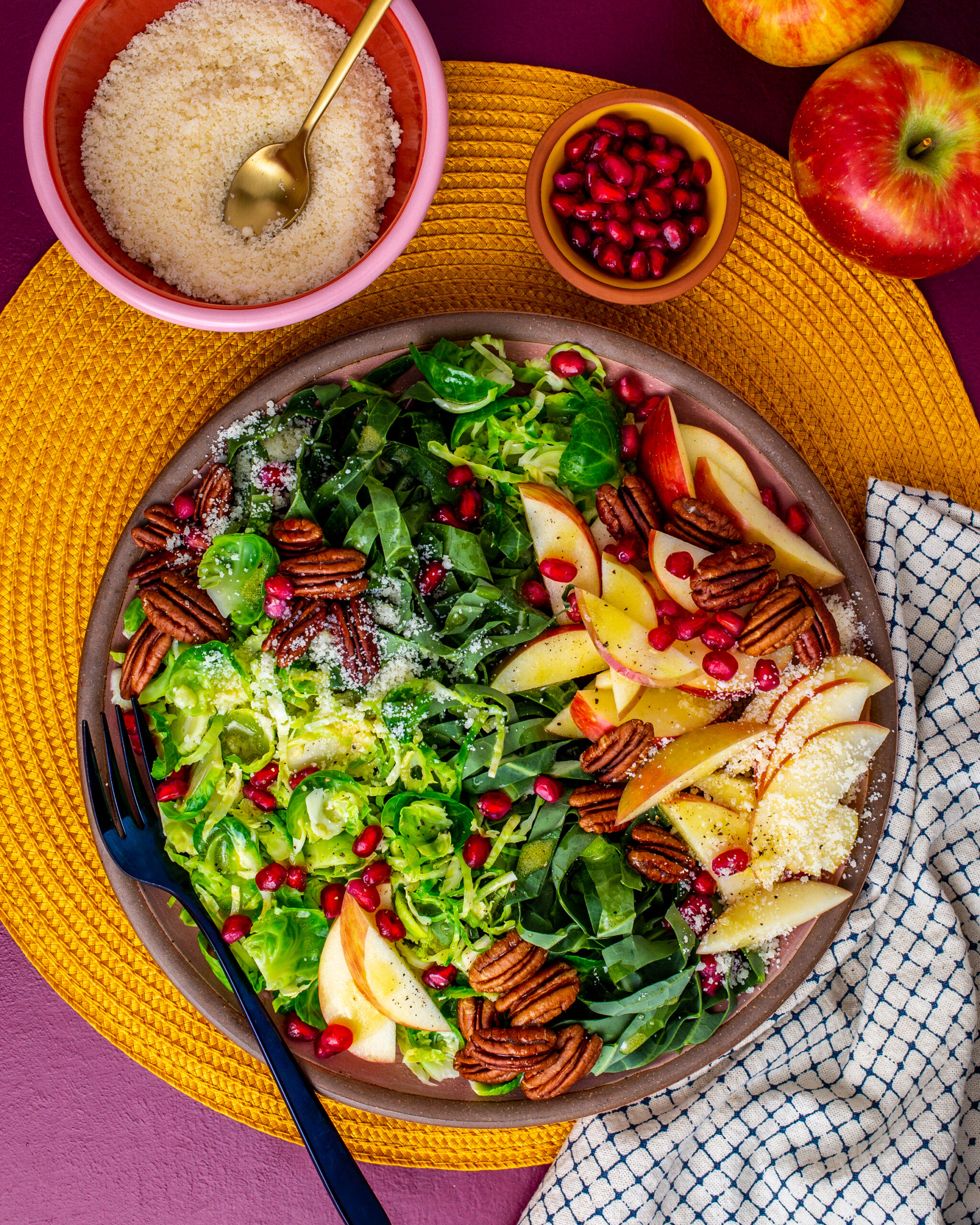
You Autumn Meet This Chopped Salad
This recipe’s base is collard greens, a fantastic plant-based source of calcium. As a pregnant woman, you need 1000 mg of calcium per day according to the American Pregnancy Association, “It’s important to consume adequate amounts of calcium in pregnancy to support the musculoskeletal, nervous, and circulatory systems.
Through the collard greens and Brussels sprouts, you’ll also get a dose of folate, an essential vitamin to reduce neural tube defects in babies.
Brussels sprouts are a great addition to your diet, as they’re a vegetarian source of omega-3s. These fatty acids play an essential role in supporting brain and eye development in babies and are linked to preventing preterm birth.Don’t skip out on the pecans in this recipe! They’re rich in protein.
Get the full recipe here.

Hot and Chili
Three kinds of beans are called for in this chili: Black beans, kidney beans, and pinto beans. A meal full of beans is a great way to get protein into your diet.
Pinto beans and kidney beans also contain iodine, which is essential for the brain development of your baby.Tip: Make a big batch of this chili and freeze it in pre-portioned blocks. Meal planning and freezing meals can help you make sure you’re eating nutritious meals.
Get the full recipe here.
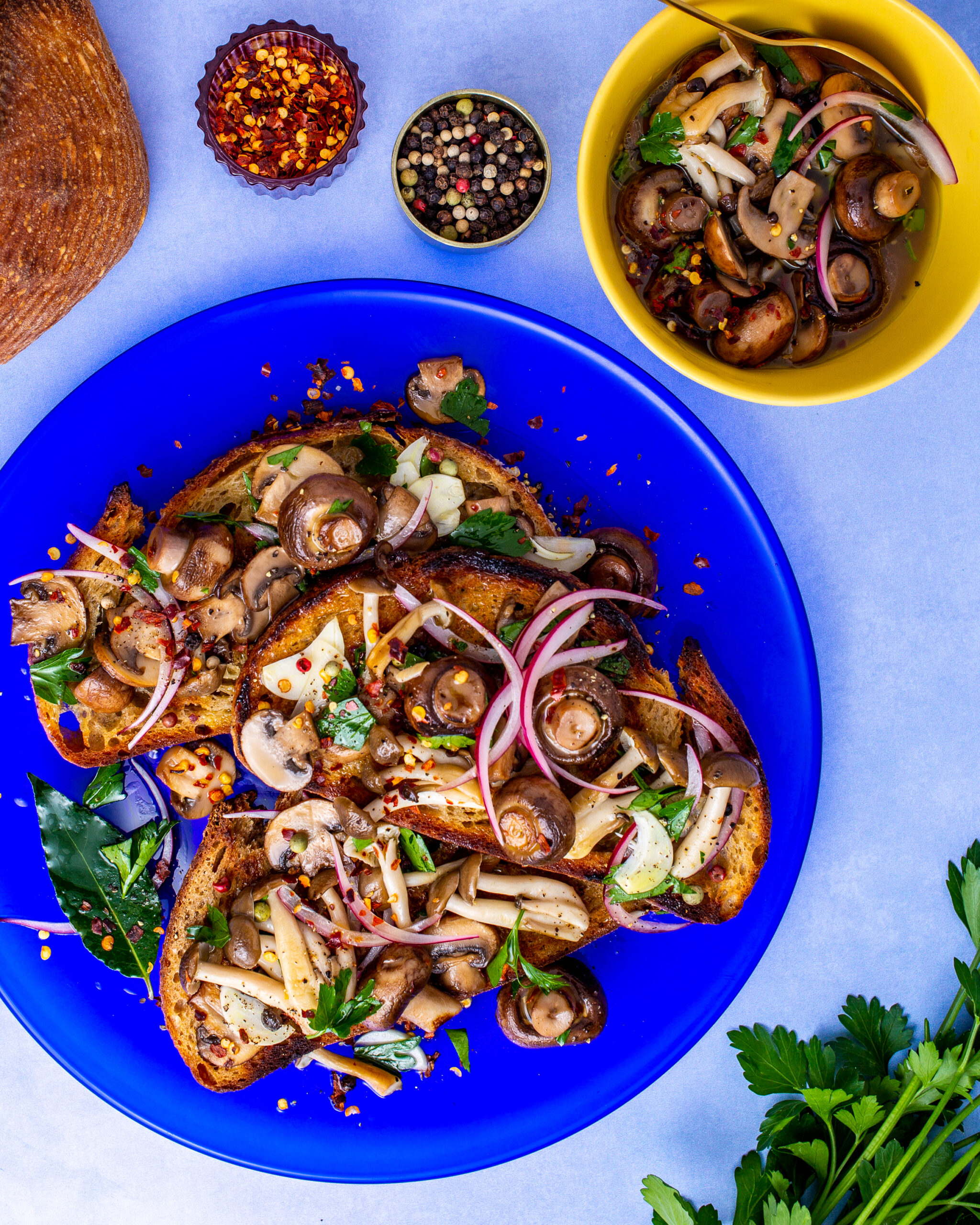
The Mother Of All Marinated Mushrooms
Not only are mushrooms rich in folate and fiber, but they’re also a good source of vitamin D.
Vitamin D, “…is essential to promote absorption of calcium from the gut and enables normal bone mineralization and growth. During pregnancy, severe maternal vitamin D deficiency has been associated with biochemical evidence of disordered skeletal homeostasis, congenital rickets, and fractures in the newborn,” says The American College of Obstetricians and Gynecologists.Get the full recipe here.
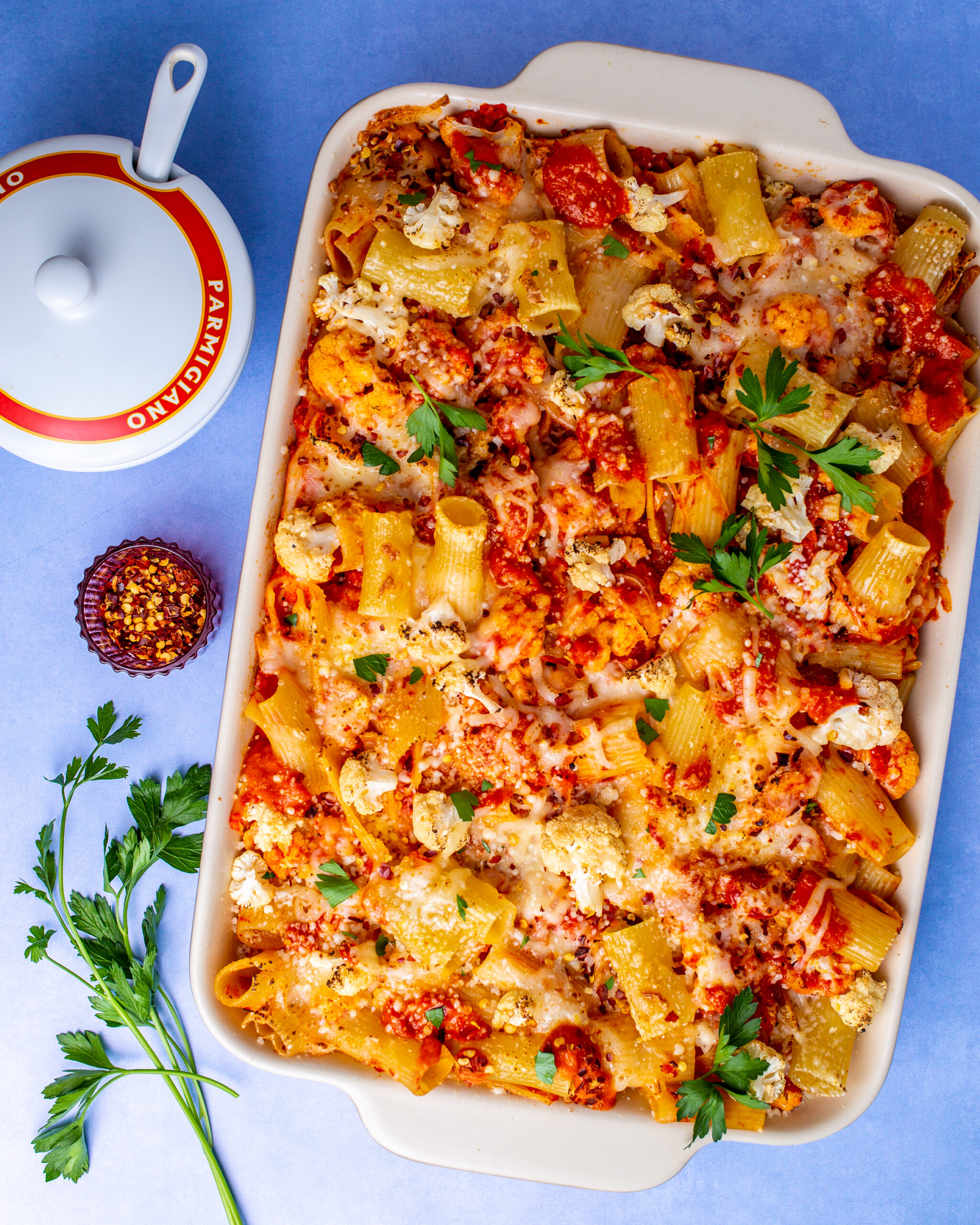
Gender Reveal Rigatoni
Mozzarella is one of the best cheeses to include in your vegetarian diet as it is rich in protein, calcium, zinc, and vitamin B12. Vitamin B12 plays a vital role in your baby’s development. “…[it’s] believed that when combined with folic acid during pregnancy, B12 supplements can help to prevent spina bifida and other spinal and central nervous system birth defects in your baby,” explains the American Pregnancy Association.Other vegetarian sources of vitamin B12 to include in your pregnancy meals include yogurt, fortified cereals, fortified plant milks, cow’s milk, and cottage cheese.
Get the full recipe here.
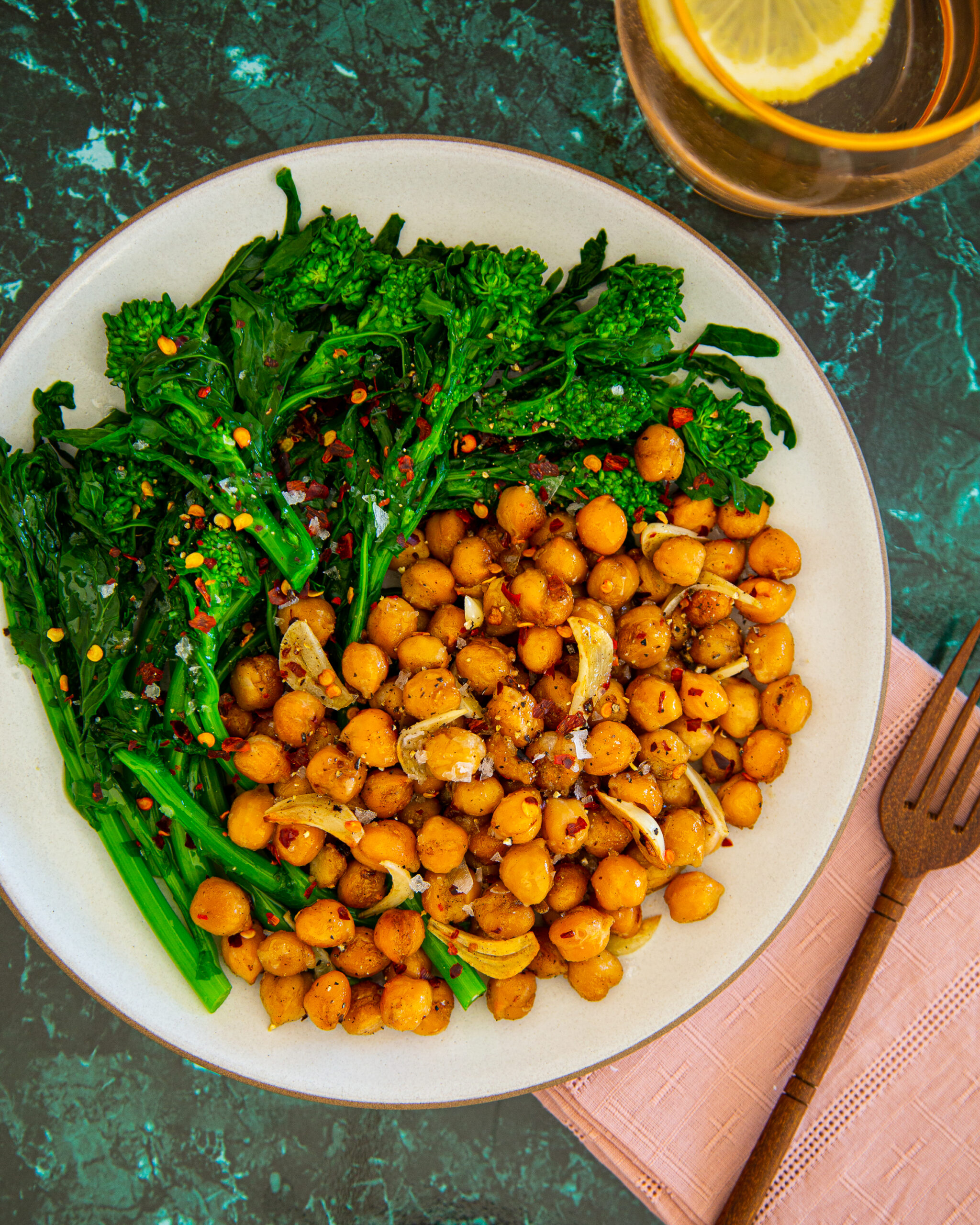
Garlicky Garbanzos and Righteous Rapini
If you don’t already, you need to include chickpeas in your vegetarian pregnancy meal plan! This bean is a healthy choice as it’s high in folate, iron, and zinc.
Zinc is an important mineral for a healthy pregnancy, as it helps to prevent preterm birth and it plays a role in cell growth and brain development in babies.The broccoli in this recipe will also help boost your iron and will provide you with vitamins A and K.
Get the full recipe here.
It is completely possible to have a healthy pregnancy on a vegetarian diet. If you want to keep meat off of the menu, make sure your plate still contains the nutrients you need with ingredients like beans, leafy greens, Brussels sprouts, nuts, and pregnancy-safe cheeses.
To help you with your pregnancy meal plan, we’ve got a free one-sheet guide listing the most nutrient-rich foods to eat while pregnant. Get it here!
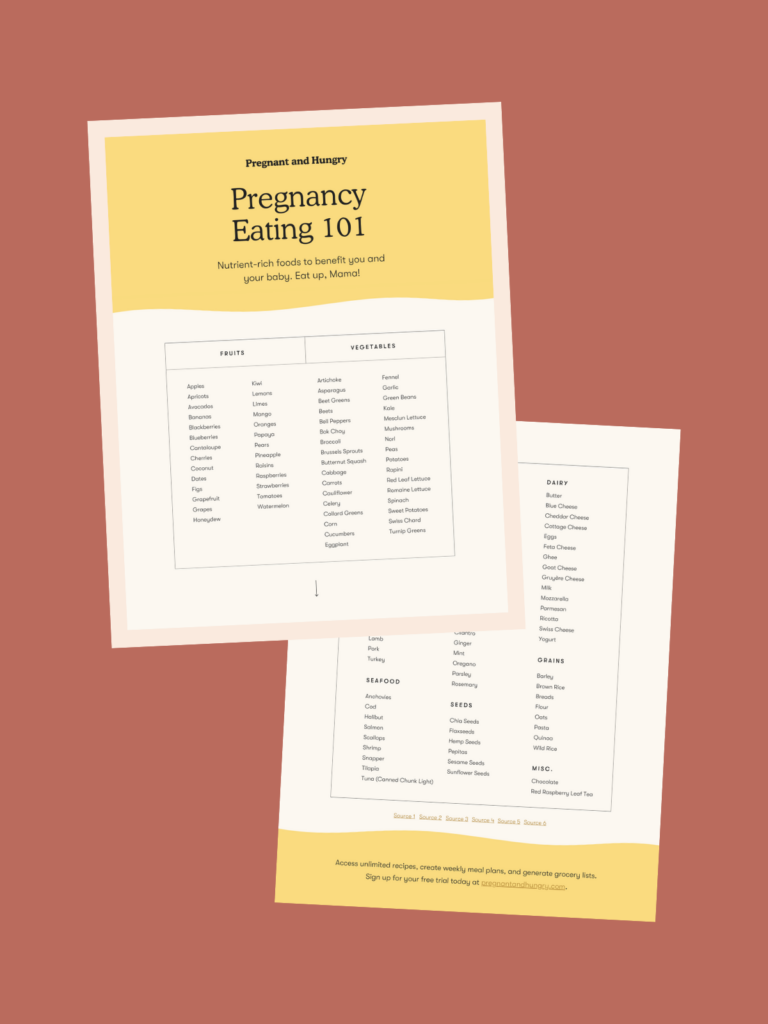
Trying to figure out which foods are safe to eat during pregnancy? From fruits and vegetables to dairy and grains, this one-sheet guide lists out the most nutrient-rich foods to eat while pregnant. We suggest printing it for your fridge and saving it to your digital camera roll for easy reference. Dig in!
A peek inside:
- Fruits
- Veggies
- Nuts
- Legumes
- Dairy
- Meat
- Herbs
- Grains
- Seafood
- Seeds
